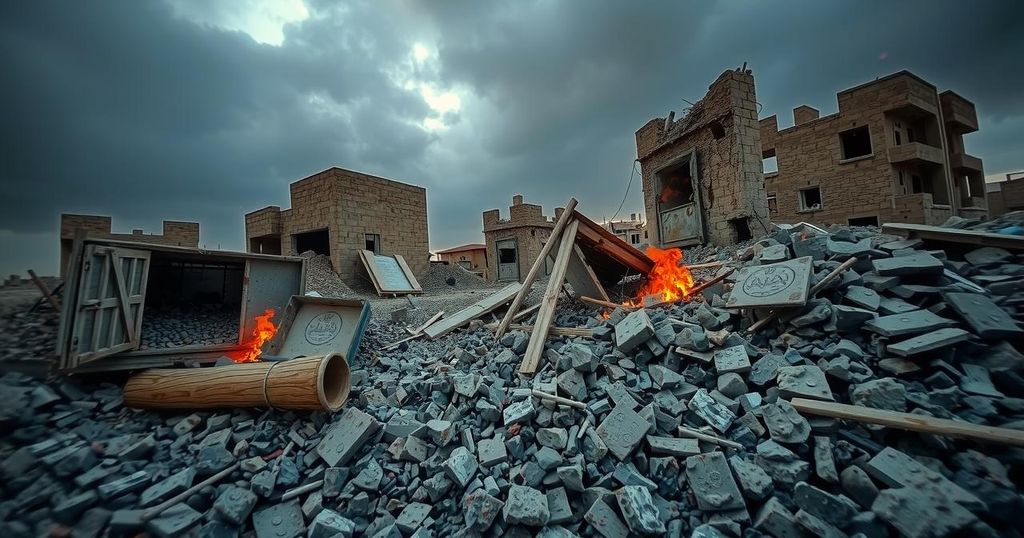Recent Israeli airstrikes resulted in significant casualties in Gaza, Lebanon, and Syria, with reports indicating at least 49 deaths in Gaza, including many innocent civilians. The violence has also impacted Lebanon, with 38 fatalities reported from Israeli attacks. International responses are rising, evidenced by protests in support of Palestinians. Amidst this, Israeli officials discuss regional security concerns with US leaders.
In recent days, the violence in Gaza, Lebanon, and Syria has escalated significantly, resulting in numerous casualties among civilians. Reports indicate that Israeli airstrikes in Gaza have resulted in the deaths of at least 49 individuals, including three laborers who were working on a well in the Nuseirat refugee camp. Moreover, an airstrike on a residential building in Jabalia killed 36 people, with 15 of them being children, illustrating the severe impact of the conflict on innocent lives. In Lebanon, at least 38 fatalities were reported due to Israeli attacks, including a devastating raid that claimed the lives of 23 individuals in a northern village near Beirut, where rescuers are still searching for survivors. The violence also extended to Syria, where an Israeli attack near Damascus resulted in seven fatalities and around 20 injuries. Meanwhile, significant unrest was reported in the Netherlands, where over a hundred protesters supporting the Palestinian cause were arrested in Amsterdam, following previous violent confrontations with opposing groups. Amid these developments, Israeli Prime Minister Benjamin Netanyahu has communicated with U.S. President-elect Donald Trump, asserting a shared viewpoint regarding perceived threats in the region, particularly concerning Iran. This situation continues to evolve, with international attention focused on the humanitarian implications and geopolitical ramifications of these clashes.
The ongoing conflict between Israel and Palestinian groups has deep roots, marked by persistent tensions, violence, and humanitarian crises. The recent airstrikes and military operations are part of a broader pattern of violence that has disproportionately affected civilian populations, particularly in refugee camps where infrastructure and basic services are severely lacking. The casualty figures highlight the tragic loss of life and the impact on children, further complicating an already dire humanitarian situation. Additionally, regional dynamics involve complex interactions with Lebanon and Syria, further exacerbating tensions. The international response, including protests and political dialogues, remains critical in addressing the humanitarian fallout and potential avenues for peace.
The recent violence in Gaza, Lebanon, and Syria underscores the tragic consequences of military actions on civilian populations, particularly children. With at least 49 fatalities reported in Gaza alone and significant casualties in Lebanon and Syria, the humanitarian crisis deepens. The international community remains engaged, as evidenced by protests and political discussions. The situation requires urgent attention to mitigate the suffering and seek pathways toward resolution and peace.
Original Source: www.aljazeera.com






